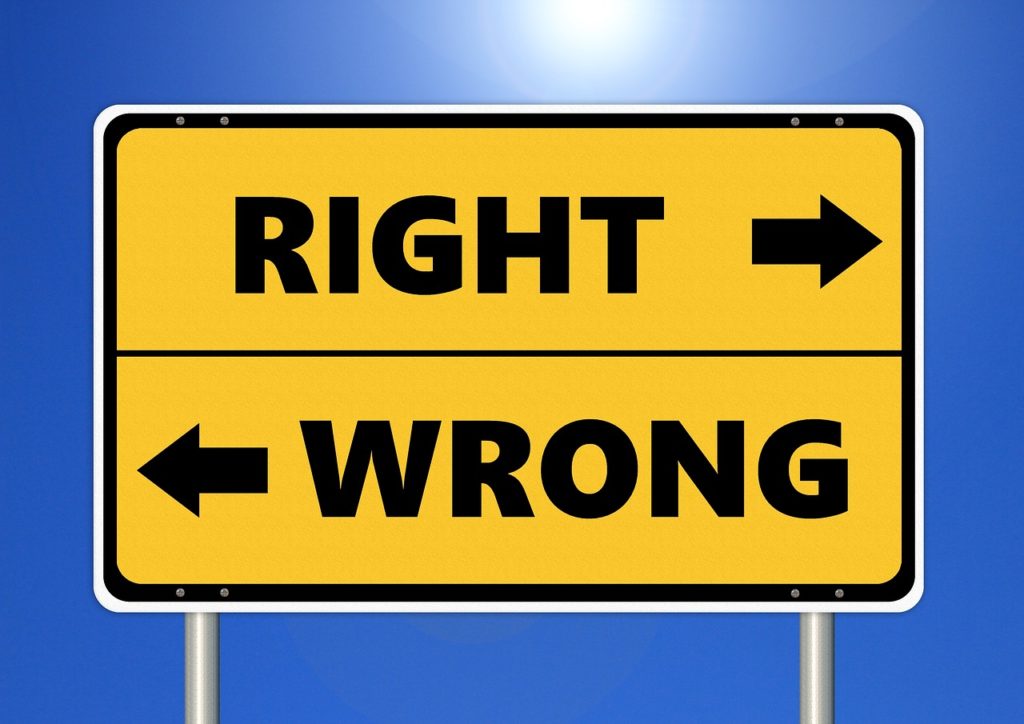What does it mean to lead “ethically”?

What would you do in the following scenario?
Competitors have colluded to keep the Rollfast Bicycle Company from entering a large Asian market. Rollfast would net $5 million annually from bicycle sales if it could penetrate the market. Last week a businessman from an Asian country contacted Rollfast management and assured them that he could “smooth the way” for the company to sell in his country for a “grease” fee of $500,000. In the Asian country, bribing is a custom which has long been considered natural.
If you were responsible, would you pay the fee?
Researchers David Fritsche and Helmut Becker have been posing this question to leaders for years, and the answer is not as straightforward as you might think.
Historically, there have been two main ways to look at this scenario, both of them focusing on the action or the behavior.
On the one hand, people taking the deontological (or the Kantian) approach say that an action is considered as either moral or immoral based on whether it adheres to a rule or rules. Interestingly, proponents of this approach do not care about the outcome of an action at all. Viewed through this lens, the answer for the scenario would be not to pay the fee, because it is a bribe and illegal and against company policy. Therefore, even though bribing is accepted in the Asian country and will surely increase revenue to the company, to the deontologists, bribing is wrong in itself, so the only answer in this situation is “no!”.
On the other hand, people adhering to the consequential (or the Utilitarian) approach say that the rightness or wrongness of an action is judged by the consequences of the action. Viewed through this lens, if paying the fee will surely lead to the increased revenue and no one is hurt in the process; then paying the bribe is not unethical. Since bribing is considered in the Asian country as a “custom,” this will benefit both the company and the businessman requesting a bribe. And because bribing has been considered natural in this country for a long time, as long as the bribe provides a win-win situation to both parties, then, to the consequentialists, the answer in this situation is “yes!”
In addition to these two perspectives, there is a third ethical perspective that has been getting attention from leadership scholars recently: the Aristotelian approach (or virtue-based ethics). Compared to deontological and consequential accounts that emphasize the nature or consequence of an action, proponents of the Aristotelian approach focus on the character of the decision maker. Viewed through this lens, the judgment of the action differs case by case. If the decision maker is considered to be a reliable and moral person and the decision is based on the decision maker’s own ethical guidelines (be they deontology, consequentialism, or another perspective), then the decision maker’s action becomes ethical regardless of whether he or she bribes or not. In contrast, if the decision maker is considered as unreliable and unethical, then neither path would be seen by the Aristotelians as ethical.
As described so far, the answer to what constitutes ethical leadership is dependent on what lens we wish to view it. So far, we have compared three different perspectives on business ethics and found that it is possible for a business decision to be justified as ethical from one perspective but unethical from another perspective. These contrasting views on business ethics make the nature of ethical leadership controversial among scholars.
However, the fact that there are multiple perspectives on ethics does not mean that behaviors that are not supported by any of these theories can be seen as ethical. If, in the scenario, the decision maker were an immoral person and bribing would cause severe financial loss to any involved parties, then bribing could not be justified by any of the three ethics perspectives. From the deontological account, bribing itself is unethical. From the consequential account, incurring a financial loss is unacceptable. From the virtue ethics account, any decision made by an immoral person is unethical. Therefore, while acknowledging multiple perspectives on business ethics and ethical leadership, we should also be alert for an unethical or immoral behavior that cannot be justified by any of the three ethical perspectives.
About the Author
Shin Han (shin.han@cgu.edu) is a doctoral student in positive organizational psychology at Claremont Graduate University. He joined the LeAD research lab as a research associate in 2014. He is interested in ethical leadership and is working on how ethical leadership is related to various organizational outcomes.
Related Research
Brown, M. E., & Treviño, L. K. (2006). Ethical leadership: A review and future directions. The Leadership Quarterly, 17, 595-616.
Fritzsche, D. J., & Becker, H. (1984). Linking management behavior to ethical philosophy: An empirical investigation. Academy of Management Journal, 27, 166-175.
Riggio, R. E., Zhu, W., Reina, C., & Maroosis, J. A. (2010). Virtue-based measurement of ethical leadership: The Leadership Virtues Questionnaire. Consulting Psychology Journal: Practice and Research, 62, 235.
Share